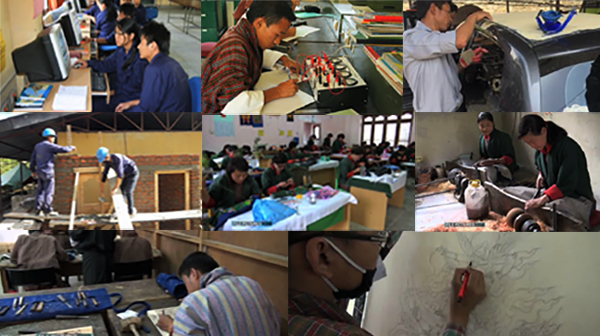 More than half of the graduates from Technical and Vocational Education Training institutes (TVET) in the country have not been able to get relevant jobs since 2013 according to the TVET Tracer Survey Report, released yesterday by the labour ministry.
More than half of the graduates from Technical and Vocational Education Training institutes (TVET) in the country have not been able to get relevant jobs since 2013 according to the TVET Tracer Survey Report, released yesterday by the labour ministry.
The report also suggests the need to improve the link between TVET and the labour market to enable TVET graduates to find the right employment.
The report collected data from more than 2100 graduates from 2013 till 2018. About 60 percent of 2013 – 2015 graduates and 58 percent of 2016 – 2018 found it difficult to get relevant jobs.
According to the report, only 37 percent of the graduates found it easy to get a job while the rest did not look for a job.
From nine institutes, graduates from Samthang Technical Training Institute reported that it was easy to get relevant jobs. The report indicated that the institute offers heavy vehicle and earth moving courses that are in high demand.
A higher number of graduates with construction qualifications reported they found it difficult to get relevant jobs compared to other graduates.
Lham Dorji, Chief Program Officer, Department of Technical Education said that one of the major issues is graduates are not sure whether they are looking for the kind of job they have been trained for or whether they are looking for different jobs.
“There is a shortage of skilled manpower on one hand and then, on the other hand, our graduates are saying that it is difficult to get the relevant jobs in the labour market. So what I felt looking at the data is that the problem lies in the labour market. We need to think about that and when we say TVET reform, we should look at both the supply and demand side,” added Lham Dorji.
Other suggestions include making jobs attractive and motivating and boosting employers’ willingness to employ TVET graduates in place of cheap importer labour.
The survey also recommends the ministry and stakeholders to emphasize on prioritizing the promotion of demand-driven courses.
Labour ministry officials said to ease the problem; there is a need to change the mindset of both the employer and employee.
Tshering Zam









